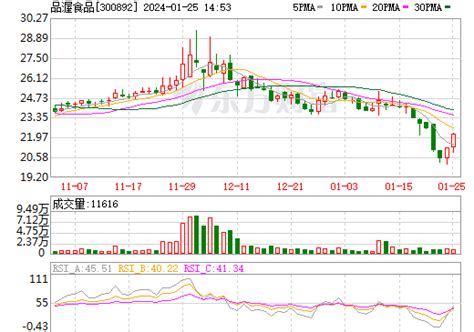In recent times, the food industry has witnessed significant shifts, influenced by various factors including consumer preferences, technological advancements, and global events. This article provides an overview of the current landscape of food industry stocks, highlighting key trends and offering insights into potential investment opportunities.
With the growing awareness of health and sustainability, plantbased food companies have been gaining momentum. Companies like Beyond Meat and Impossible Foods have experienced substantial growth as consumers seek alternatives to traditional meat products. Investors are closely monitoring these companies, anticipating further expansion and innovation in the plantbased food sector.

The pandemic accelerated the adoption of online food delivery services, leading to increased investor interest in companies like DoorDash, Uber Eats, and Grubhub. As consumers continue to prioritize convenience and safety, these platforms are expected to maintain their relevance in the market. Moreover, the integration of technology such as AI and data analytics further enhances their competitive edge.
Consumers are becoming more conscious of their health, driving demand for products that offer nutritional benefits. Companies specializing in organic, natural, and functional foods are seeing steady growth as they cater to this evolving market segment. Investors are eyeing companies like Whole Foods Market and Sprouts Farmers Market for their potential to capitalize on the health and wellness trend.
Large food corporations are adapting to changing consumer preferences by investing in innovation and diversification. Companies like Nestlé, PepsiCo, and Kellogg's are expanding their portfolios to include healthier options and acquiring smaller brands to tap into emerging trends. Investors are optimistic about these companies' ability to leverage their resources and distribution networks to drive growth.
Technological advancements are reshaping the food industry, with startups focusing on areas such as food tech, precision agriculture, and alternative protein sources. Investors are keeping an eye on companies involved in vertical farming, labgrown meat, and food waste reduction initiatives. These innovations not only address environmental concerns but also present lucrative opportunities for investors seeking longterm sustainability.
While the food industry offers promising investment prospects, it is essential for investors to conduct thorough research and consider certain factors:
Market Volatility: Economic fluctuations and unforeseen events can impact stock prices, necessitating a diversified portfolio strategy.
Regulatory Environment: Changes in regulations related to food safety, labeling, and advertising can affect companies' operations and financial performance.
Competitive Landscape: The food industry is highly competitive, with companies vying for market share through innovation, marketing, and pricing strategies.
Consumer Preferences: Shifts in consumer preferences and trends can influence demand for certain products, requiring companies to adapt accordingly.
In conclusion, the food industry presents diverse investment opportunities across various segments, from plantbased foods to technological innovations. Investors should carefully evaluate companies based on their growth potential, competitive positioning, and alignment with consumer trends. By staying informed and proactive, investors can navigate the dynamic landscape of food industry stocks effectively.